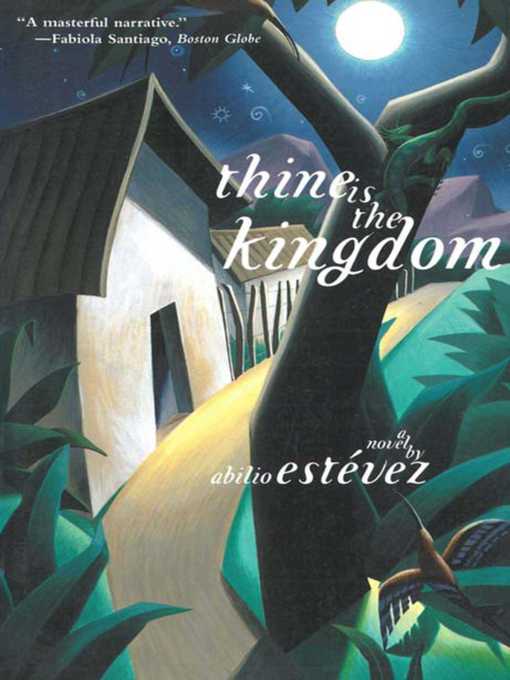
Thine is the Kingdom
A Novel
کتاب های مرتبط
- اطلاعات
- نقد و بررسی
- دیدگاه کاربران
نقد و بررسی

Starred review from January 4, 1999
Although Estevez's (Manual of Temptations; Game with Gloria) transfixing tour-de-force takes place on an enclave--called the Island--in the center of Havana, it reads much like a journey around the world. Estevez interweaves sequences--a tale of incestuous siblings, a family's adoption of a wounded orphan, vivid glimpses of Havana nightlife, an ensemble of intense characters, the narrator/author's kvetching relationship with his own characters--into a novel that entices readers gently forward with the promise of one tantalizing mini-narrative after another. Just as a small but imposing door divides the Island and the outside world, called The Beyond, the Island's inhabitants try without success to protect themselves from the sublime, unknowable forces governing the territory. Estevez blends Greek myths, biblical tales and literary citations into his own historical mythos. Expressions of abject sorrow, cries of great passion and a quote from George Sand or Rilke may inhabit a single sentence. Allusions abound, arrayed with the complexity and poise of Joyce or Pound. The book consistently throws story-telling and character-crafting--indeed, even the assumed relationship of the reader to the author--into question. After an eerie sequence involving the incestuous lovers, Estevez asks: "Did you like it? No, it's a fake story, too melodramatic, too graphic, sounds like it was told by a southern writer from the United States." This novel ends with an original combination of satire and apocalypse, adding a dark cast to the preceding whimsy. The many small plots operating in this impressive montage are tempered, though not tamed, by the author's insistence on questioning his own--and the reader's--narrative assumptions.

January 1, 1999
Despite minor shortcomings in a final, self-referential section, this first novel from an award-winning Cuban poet is a tour de force, a mixture of European mythology, art, and literature set in Cuba on the eve of the revolution. It centers on a run-down estate called the Island. A place both real and metaphorical, the Island is surrounded by the Beyond, through which an ensemble comprising bookstore owners, housewives, mutes, sensualists, and various others bursts like the masked characters in a Renaissance comedy. By the end of the decadent time Estevez describes, a fire has destroyed the Island and its dying way of life. European cultural dominance burns along with it, leaving only the Proustian impulse to re-create a bygone world and the concomitant search for a true voice to help in the process. This literary search for a chaotic and sensual past dominates throughout. Highly recommended for literary and Latino collections.--Harold Augenbraum, Mercantile Lib. of New York

February 1, 1999
In this exuberant first novel, Cuban poet Estevez creates a world from a section of Havana called "the Island," a place imbued with not only heat and light but also myth, fantasy, and the supernatural. Settled in the nineteenth century by a pair of incestuous siblings, the island is the site of strange happenings during two months before the 1958 revolution: it rains ceaselessly (or does it?), a saintly Wounded Boy wanders around bleeding, and the Barefoot Countess issues dire warnings that turn out to be true. Meanwhile, Irene tends a stranger's wounds and fears for her memory, manager Helena seeks out strange noises, Rolo runs his bookstore and roams, teacher Miss Berta eyes her aged sleeping mother, Merengue sells pastries from his cart and searches for his sculptor son, and Melissa glories in her nakedness on her roof at night. In varying narrative voices, Estevez contemplates life, death, the literary world, and the nature of reality. Readers luxuriate in the language--lush, lyrical, and occasionally erotic--of this remarkable example of magic realism. ((Reviewed February 1, 1999))(Reprinted with permission of Booklist, copyright 1999, American Library Association.)

























دیدگاه کاربران